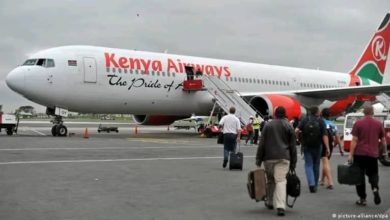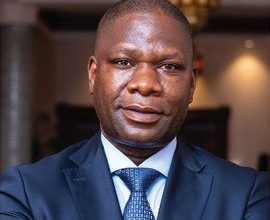Business
Renewed hope for Low wage earners

Hopes are high that in a matter of weeks, minimum wage earners will have increased disposable income, thanks to government’s decision to hike the minimum wage by about 43 percent from K35 000 to K50 000 per month.
The proposal to hike the minimum wage came a year after Ministry of Finance also increased the minimum wage from K25 000 to K35 000 per month, three years after government last revised the minimum wage by 24 percent from K19 000 to K25 000 a month.Although government is yet to gazette the new minimum wage, workers are optimistic that come January 2021, it will be a new dawn for low-paid workers.
Malawi Congress of Trade Union (MCTU) secretary general Denis Kalekeni said in an interview that following discussions with social partners, including government and Employers Consultative Association of Malawi (Ecam), it was agreed that the new minimum wage should come into effect on January 1 However, concerns remain on whether government will exempt more sectors other than the domestic workers, which MCTU felt needed exemptions as over 90 percent of workers are employed at household levels, whose bosses are middle-income earners.

Said Kalekeni: “What was remaining was for the Ministry of Labour to finalise on the issue of exemptions. Our counterparts had also some sectors which they presented, which we thought were a bit of exaggeration.
“Regardless of this, we are still optmisitc that come January 2021, it should come into effect. But that will require Ministry of Labour to gazette this into law.”
He observed that the new minimum wage is coming at a time cases of Covid-19 are on the decline and economic activities are slowly picking up; hence, there is hope that more employers will be able to afford the wage.
The new minimum wage proposal came as a result of the continued struggle of many Malawians in accessing basic commodities following reduced purchasing power necessitated by reduced incomes due to the Covid-19 pandemic.
With the cost of living in urban areas at about K198 000 per month for a family of six and a food poverty gap of K100 000, according to the Centre for Social Concern, the current minimum wage provides little cushion to workers.
As a result of the pandemic, a joint June 2020 assessment of the impact of Covid-19 on employment in Malawi by Ecam and the International Labour Organisation showed that a typical worker in the informal sector will see their earnings go below K22 396 ($30.37).
But if the pandemic persists up to December this year and March 2021, earnings will go below K17 729 ($24.07) and K16 152 ($21.9) respectively, both of which are below the $1 (about K770) a day.
The assessment showed that for formal workers, if it were not for the Covid-19 crisis, the aggregate monthly labour income in 2020 would be in the region of K941.2 billion ($1.25 billion) and that would rise to about K1 092.66 billion ($1.46 billion) in 2021.
However, the assessment shows that the pandemic will cost each worker between K11 853 ($16.07) and K18 096 ($24.54) of labour income per month.
Ironically, inflation rate has been on the decline with Reserve Bank of Malawi (RBM) figures indicating that during the second quarter (July to September), inflation averaged 7.6 percent from 8.9 percent in the second quarter (April to June).
The decline, according to RBM, is a reflection of joint effects of bumper maize harvest during the 2019/20 agricultural season; suppressed prices due to the Covid-19- induced weak demand for maize and basal effects from high food prices in 2019.
Subsequently, the projected annual average headline inflation rate for 2020 was also lowered to 8.6 percent from 9.8 percent projected during the Third 2020 Monetary Policy Committee round.
Consumer rights activist John Kapito observed that while there have been some improvements following the reduced cases, the sad thing is that recovery will demand a lot of energy and investments.
He said: “This is not an overnight recovery because we might have scaled down the pandemic, but in our borders, there are still some restriction and so does the global markets we access.
“This is not just about Malawi. And there are those companies who scaled down and some people who were retrenched. For them to start making profits and earning disposable income, it will take some time.”
While MCTU wants domestic workers to be exempted, Ecam wants the exemption to extend to food and accommodation, transport and warehousing, agriculture, manufacturing and security services sectors.
Ecam said while employers are not seeking a total exemption, they are looking at small and medium enterprises and sectors that have been negatively affected by the Covid-19 pandemic.
Ecam had proposed that the minimum wage be revised to K38 000 in these sectors to cover for inflation.
But at K38 000, this is K12 000 shy of the proposed minimum wage of K50 000 and K3 000 above the current minimum wage.
Ecam executive director George Khaki said in an interview that in the face of Covid-19, many companies are failing to manage wages, which has resulted in pay cuts and in worst cases job losses.
He, however, said while employers are still waiting for communication from government which is usually a gazette, “the delay in formally communicating is making planning very challenging”.
Said Khaki: “We requested some exemptions on the minimum wage and we look forward to these being considered.”
However, MCTU feels exempting the sectors would challenge the whole idea of raising the minimum wage.
Minister of Labour Ken Kandodo said his ministry understands that the environment is not conducive in the face of Covid-19 pandemic and that many businesses are operating on half-scale.
“This is temporal. Businesses will soon get to normal once the pandemic is gone; hence, we need to start planning,” he said.






